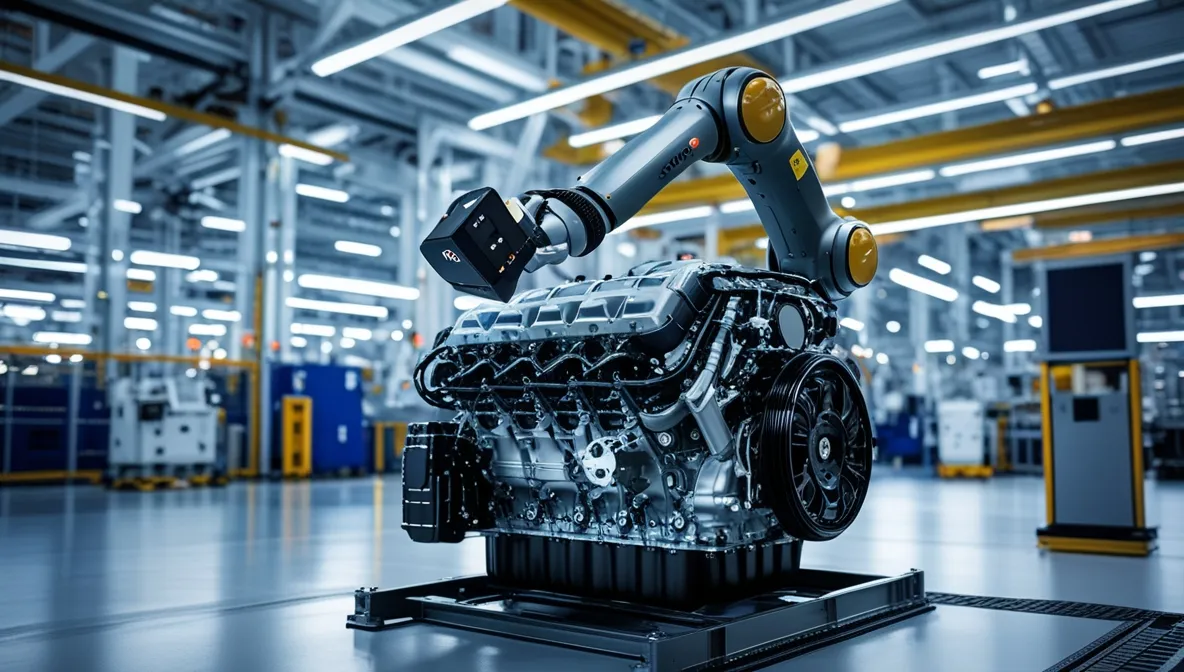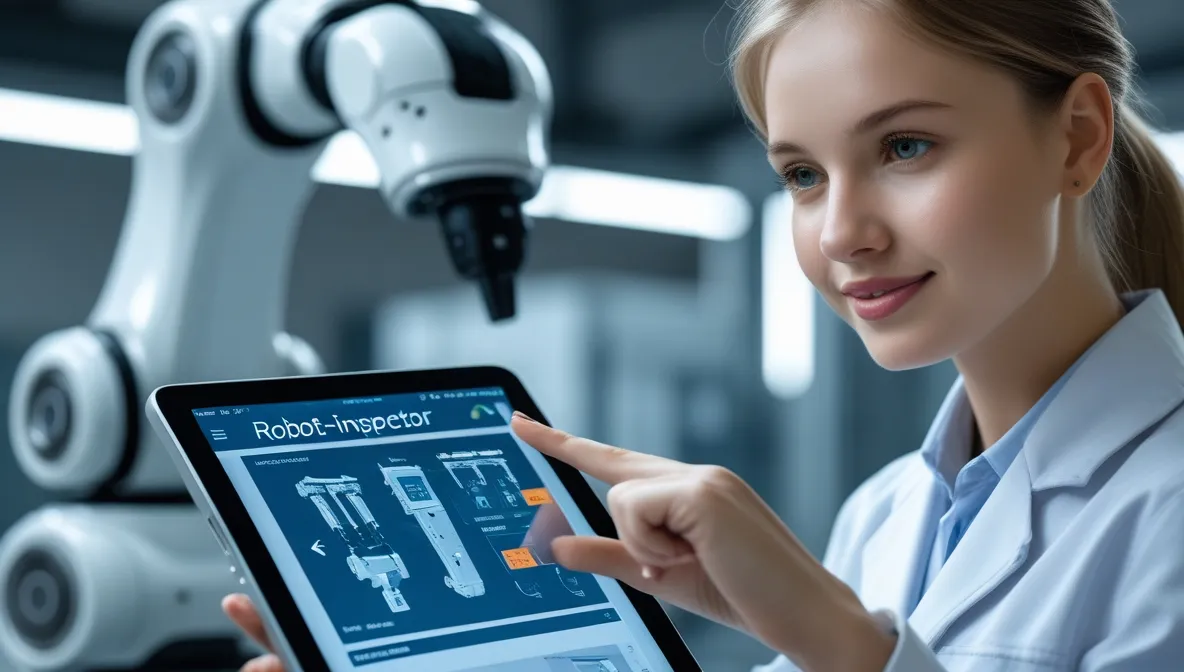‘Robot-Inspector’ Revolutionizes Diesel Engine Production at Russia’s Sollers Plant
A Russian engine plant has introduced an automated robotic quality control system that measures precision to hundredths of a millimeter — bringing the country’s automotive manufacturing into a new digital era.

A Digital Passport for Every Engine
At Sollers’ engine plant in Yelabuga, an advanced automated quality inspection system—nicknamed the ‘robot-inspector’—has replaced manual verification with a fully digital process. The installation scans all fastening points, measures tightening parameters with sub-millimeter accuracy, and compares them against a digital reference model.
If even the smallest deviation is detected, the system flags the unit for correction. Powered by machine vision and force sensors, the scanner eliminates the human factor—one of the main causes of hidden defects that may only surface during operation.

The technology is particularly vital for turbo-diesel engines, which power commercial vehicles, SUVs, and heavy-duty machinery operating under extreme mechanical and thermal stress. In such environments, even a microscopic torque error can lead to critical failures. Robotic control identifies these risks during assembly, extending engine life and enhancing customer confidence.
Every engine inspected receives a digital passport—a unique dataset recording every assembly and inspection parameter. This information forms the foundation for analytics, long-term quality tracking, and rapid incident resolution when needed.
WINNUM: The Factory’s ‘Cardiac Monitor’
The initiative is part of Sollers’ broader digital transformation strategy. In June 2025, the company launched WINNUM, a Russian industrial platform developed by technology partner PROF-IT GROUP.
WINNUM functions as a real-time 'cardiac monitor' for production, collecting data from more than 160 pieces of equipment across six assembly lines. It tracks production volume, defective parts, uptime, and downtime, helping engineers diagnose machine health instantly.
By integrating quality control and production data, Sollers has turned operational visibility into a strategic asset—reducing inefficiencies, increasing throughput, and improving decision-making at every level.

Domestic Innovation Strengthening Independence
For Russia’s automotive sector, this initiative carries strategic weight. As the country pursues technological sovereignty and import substitution, digital quality assurance directly enhances the competitiveness of domestically produced vehicles.
For end users, the benefits are tangible: longer-lasting engines reduce maintenance costs and improve safety, particularly in freight and commercial transport sectors.
The system is designed for scalability. Adaptable across different models and components, it can be deployed on assembly lines for gasoline engines, transmissions, or body modules. Key next steps include developing a standardized ‘robot-inspector’ module, integrating it with enterprise MES/ERP systems, and training specialists for operation and maintenance.

Export potential is also on the horizon. With rising demand for affordable automation solutions in the CIS, Asia, and Latin America, the technology could find markets abroad—especially once intellectual property protections and engineering support frameworks are formalized.
Global Context: Robotics at Scale
The global manufacturing industry is moving in a similar direction. Volkswagen already uses KUKA collaborative robots for bolt-connection control, while Toyota Motor Hokkaido achieved a 98% utilization rate on its lines thanks to cobots.
Russia is now closing the gap. At KAMAZ’s press-and-frame plant, the Kazan-based company Eidos Robotics successfully tested its six-axis A12 manipulator, welding cabin brackets with exceptional precision—completing a month’s workload in just one to two weeks. Both the robot and its software are fully Russian-developed and included in the national industrial registry.
Meanwhile, Ulyanovsk Automobile Plant (UAZ) is finishing installation of a high-precision press line for stamping body panels. The new equipment minimizes geometric deviations, improves surface finish, and reduces waste and energy consumption—bringing key components in-house and preparing the plant for next-generation models.
Together, these advancements mark more than modernization—they represent a new manufacturing paradigm built on data, automation, and AI as the cornerstones of reliability and efficiency.










































